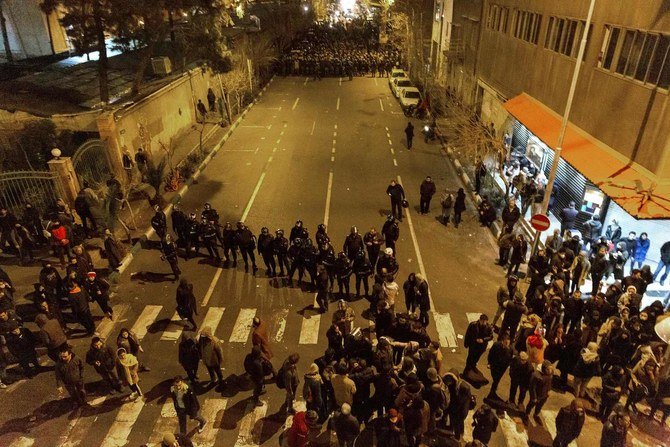
- ARAB NEWS
- 13 Jul 2025

LONDON: The UN’s leading human rights official on Friday condemned recent deadly assaults on protesters in Iran.
High Commissioner for Human Rights Michelle Bachelet called on the Iranian government to focus on addressing the “chronic water shortage” in Khuzestan province, which sparked the demonstrations, rather than “crushing protests.”
“The impact of the devastating water crisis on life, health and prosperity of the people of Khuzestan should be the focus of the government’s attention, not the protests carried out by people driven to desperation by years of neglect,” she said.
“I am extremely concerned about the deaths and injuries that have occurred over the past week, as well as the widespread arrests and detention.”
The UN and rights groups have condemned the Iranian regime’s “disproportionate” response to the protests. According to Amnesty International, at least eight people have been killed by security forces since the demonstrations began last week in the south-eastern province, which is home to many of the country’s ethnically Arab residents.
Khuzestan used to be the country’s main and most reliable source of water, according to the UN, but “mismanagement over many years, including the diversion of water to other parts of the country, coupled with nationwide droughts, has drained the province of its precious, life-saving resource.”
Desperate for water, people took to the streets chanting: “I am thirsty, water is my right.” Bachelet said that the UN, through a General Assembly ruling, agrees that access to safe drinking water is a basic human right.
“Water is indeed a right,” she said. “But instead of heeding the legitimate calls by citizens for that right to be upheld, the authorities have for the most part concentrated on oppressing those making those calls.
“The situation is catastrophic and has been building up for many years. The authorities need to recognize that and act accordingly. Shooting and arresting people will simply add to the anger and desperation.”
Ethnic minorities in Iran have long faced oppression at the hands of the state, which favors Shiites and Persian-speakers to the detriment of religious and linguistic minorities. Non-Persian ethnicities, including Arabs, Azeris, Kurds and others, face economic marginalization, unfair treatment by the legal system, disappearances and even executions following sham trials, according to Amnesty.
Last year, “ethnic and religious minorities faced entrenched discrimination as well as violence,” the organization said in a report. “Enforced disappearances, torture and other ill treatment were committed with impunity on a widespread and systematic basis.”
However it “is never too late to change tack,” Bachelet said. “And the government of Iran desperately needs to change tack, beginning with issuing clear instructions to security forces to abide by international standards on the use of force.”